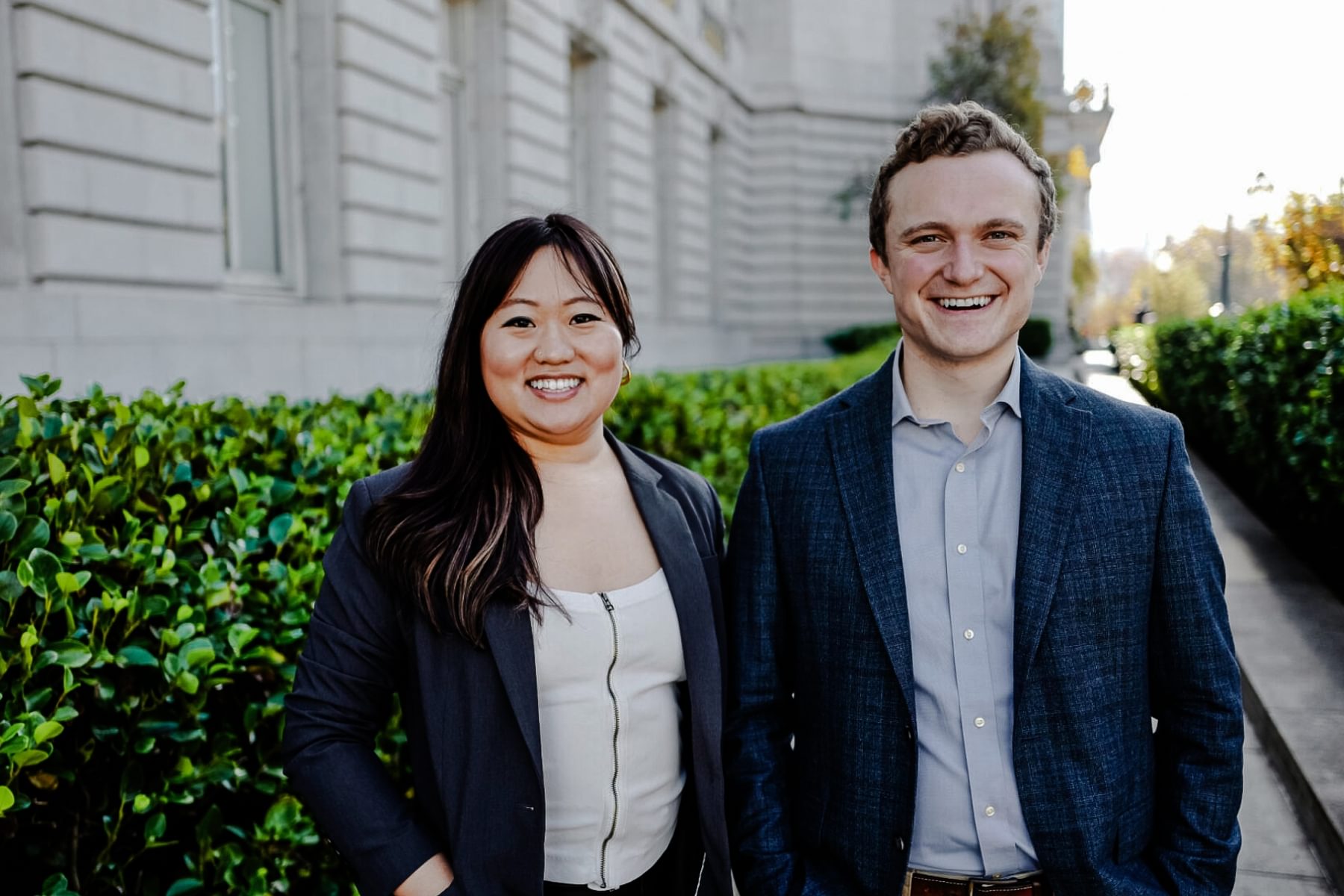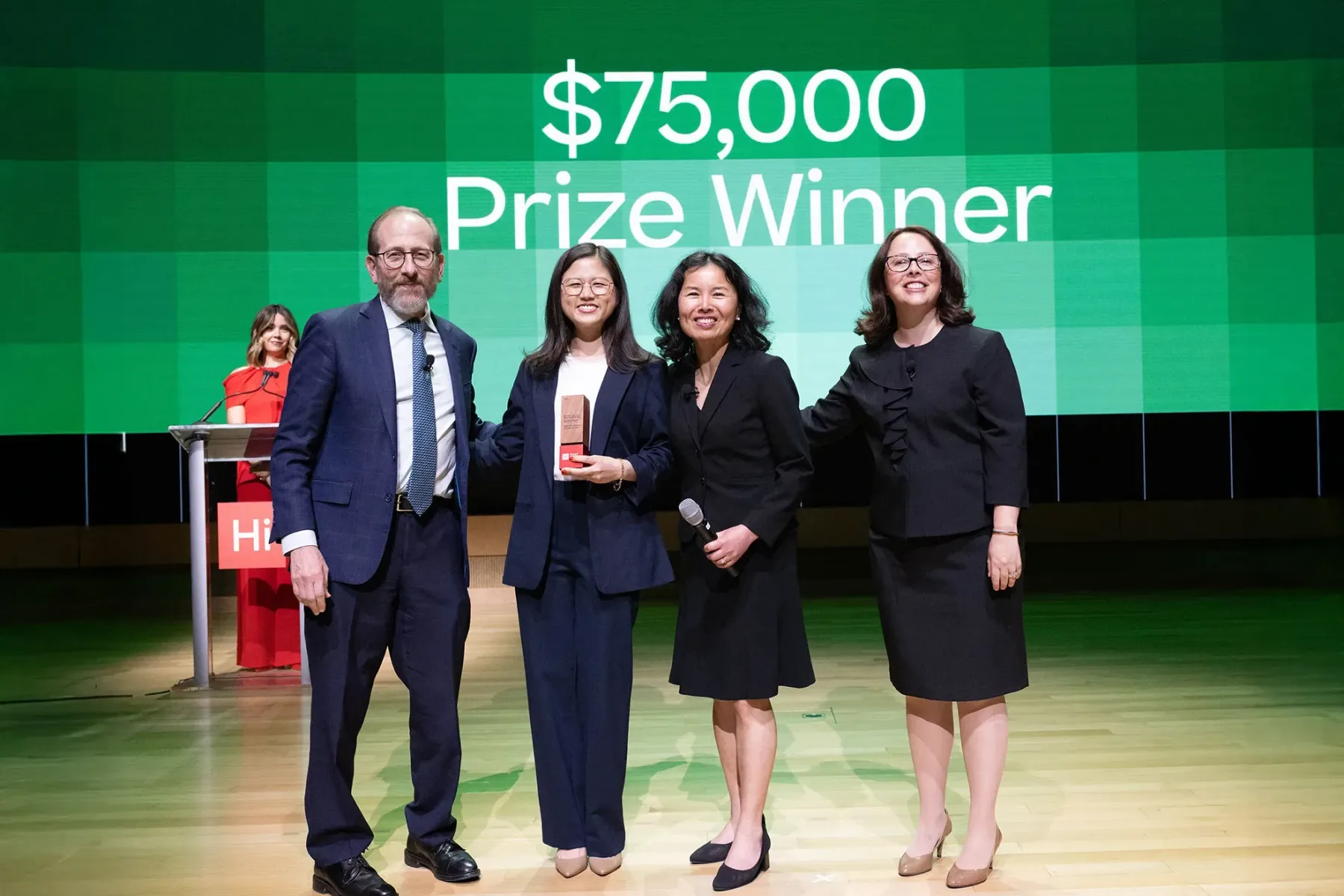Two former Harvard Innovation Labs' startups have made the most of their recent trips into ABC’s Shark Tank.
A couple of weeks ago, former i-lab company Unshrinkit, the wool unshrinking solution, appeared on the show and ended up with a $150,000 investment from Mark Cuban. Last Friday, another company out of the i-lab, LovePop, also won over the sharks, getting $300,000 from Kevin O'Leary.
Unshrinkit's second chance at the Shark Tank
According to Unshrinkit co-founder Desiree Stolar, she and her co-founder Nate Barbera went to an open casting call well over a year ago. The casting agents loved the idea, but told the duo that it was too early for Unshrinkit, that the show was looking for market traction more than just patents. The company, however tried again earlier this year and ended up getting chosen to pitch.
Unshrinkit co-founder Des Stolar: The team was away during break, and I thought we should just apply. We had some promising traction, and, so, I just said to myself, 'What’s the worst that can happen, they say no and we apply the following year.' So I applied, and within two weeks I had heard back from them asking for new materials from us.
What did the preparation entail?
We watched almost every episode and would pause when a shark asked a question and then we’d try to answer it ourselves.
We built a database of all the possible information on the sharks and they people who had been on the show so that we could be as prepared as possible for when and if they called us to go on set. And then they did.
That happened in the middle of the summer, and we were still closing out our i-lab VIP session and incubating at MassChallenge. We were constantly surrounded by people who would to have love to have helped us. But we couldn’t tell a soul. It wasn’t until October that we were able to share what had been going on for six months of our lives.
How did the i-lab play a role?
In May of 2015 we reached out to managing director Jodi Goldstein, and staff members Neal Doyle and Alice Ly, and told them that we were at the late stages of obtaining an investment from a specific group of angel investors that have a unique way of deciding their investments.
We told them that we will have to be in a room with about six investors who will not have received information about our company beforehand. We told them that the reason the investors do this is because they want to put pressure on the founders, to see if they can perform under duress and if they can talk about their company with both competency and passion.
We asked if the i-lab could put together a group of VCs or angels or brand strategists who could play the part of these angels and grill us for two hours. Within a week, they helped us find six people willing to do that.
And so we were basically able to simulate the Shark Tank experience without anyone knowing that it was for Shark Tank. That two-hour period, during which Nate and I had to dive deep into questions and hear different perspectives from a diverse crowd, was the best preparation for Shark Tank. It was the first time we had to go two hours straight having to answer investors questions.
I can’t imagine any other organization but the i-lab that could have such a good relationship with its mentors that they could pull that off as quickly as they did.
So how was the actual Shark Tank after all that?
We spent about two hours in front of the sharks. In the first half hour, we convinced them that we were legit. In the last hour and a half, we answered questions and got into discussions about the market and customer.
Mark’s opinion carries a lot of weight outside of the Shark Tank circles, so we were thrilled that he was interested, and that he gave us an offer we were particularly interested in taking.
LovePop wows with its customized cards for the sharks
LovePop, the maker of uniquely designed cards for all occasions, was discovered by Shark Tank producers at a casting call at the Harvard i-lab. The company, and its product seemed ideally fit for the show. As LovePop co-founder Wombi Rose said, "Since we launched, we've had about five people per day tell us that we need to go on the show."
In preparation for their appearance, they had cards made specifically for each of the potential investors they presented their product to on the show. They succeeded in winning over Kevin O'Leary who agreed to back the company for $300,000.
LovePop co-founder Wombi Rose: Our thought process for going on the show was relatively straight-forward. It's obviously a tremendous opportunity for any early-stage company. But it only makes sense at a time when the sharks capital and expertise is going to be beneficial to your business.
At the stage we were at, it was a no-brainer. We needed some capital in the business, we had a product that we had seen so much traction with, and we were getting people got so excited by what we were doing, not only from a product standpoint but from a philosophically.
The only real question was always going to be whether or not they would let us pitch and if they would actually air us.
What does it say about the i-lab that there have been multiple teams on Shark Tank this year?
The number one reason is that Shark Tank is a show about entrepreneurs doing innovative things.
I think there are a lot of innovative people in the i-lab doing innovative things. There are a lot of innovative products, a lot of products that are solving problems that no one else is looking at in the i-lab.
There just happen to be a lot of incredible stories at the i-lab that people want to connect with. I think that there are just a lot of stories that people want to share with the world. They are the type of stories that both the Shark Tank investors and the show's viewers want.





